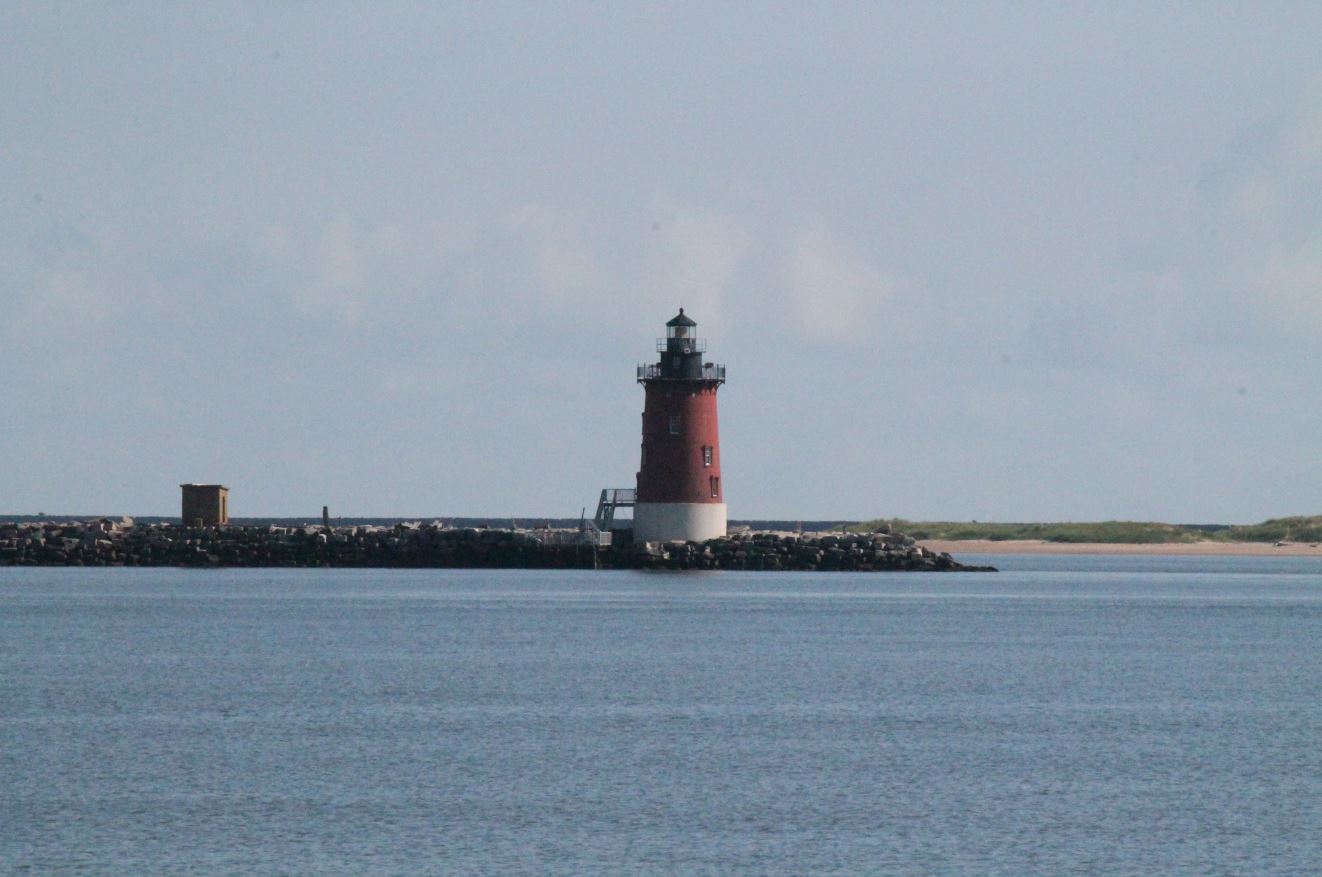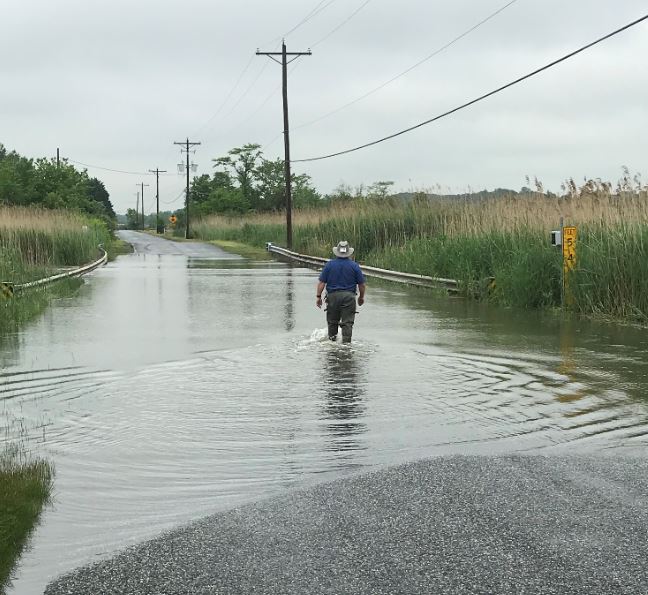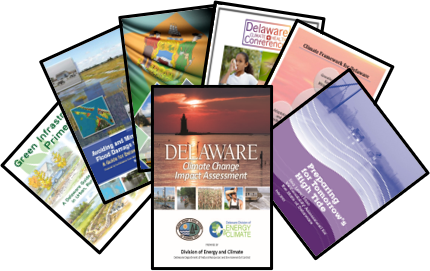Delaware has taken steps to address the causes and consequences of climate change with the goal of minimizing greenhouse gas emissions and maximizing resilience to the impacts of climate change we are witnessing today.
For more than a decade, state agencies and their partners have developed data, collected information and published reports centered on emissions, resiliency and the impact of climate change on Delawareans. Delaware’s Climate Action Plan builds on these efforts and outlines key strategies for minimizing greenhouse gas emissions and maximizing resilience to the impacts of climate change we are experiencing today.
Delaware’s past and present actions to minimize emissions have focused on the areas of clean and renewable energy, energy efficiency, transportation and reducing high global warming potential greenhouse gases.
Past and present actions to maximize resilience have focused on the areas of policy, planning and regulations; capacity-building for state and local governments; and developing research, data and tools.

Sea Level Rise Planning Scenarios from the Delaware Geological Survey, updated in 2017, provides data and an interactive coastal inundation map to help plan for future floods.
Coastal Inundation Maps developed by the Delaware Geological Survey in 2017 help inform infrastructure, facility, land use and capital spending planning for sea level rise.
The DNREC Flood Planning Tool is an interactive web map application designed to provide location-based flood risk information to Delawareans.
The Delaware Coastal Flood Monitoring System is a web-based tool and alert system designed to provide emergency managers, planners, and others with information about upcoming coastal flood events.
The Delaware Environmental Observing System provides real time weather and environmental conditions for Delaware and the surrounding region.
The Delaware Climate Change Projections Portal provides data visualization, data downloads, and general information from model runs used in the 2014 Delaware Climate Change Impact Assessment.
The DNREC Division of Air Quality compiles an annual Greenhouse Gas Emissions Inventory that provides information on activities in the state that cause emissions of six greenhouse gases.
The Mid-Atlantic Ocean Data Portal consolidates available spatial data and enables state, federal and local users to visualize and analyze ocean resources through an interactive tool.

The Delaware Climate Information Center provides easy access to relevant and useful information for assessing impacts and preparing for climate change in Delaware. It is intended to be used by citizens, business owners, government officials, and scientists.
The Office of the Delaware State Climatologist is the principal scientific extension service for weather and climate information for the State of Delaware. The office makes Delaware specific weather and climate information accessible to the residents of Delaware through its web page, media interviews, monthly publications and through other extension activities.
The U.S. Climate Resilience Toolkit provides tools, case studies, information and subject matter expertise to build resilience. The Toolkit offers information from all across the U.S. federal government in one easy-to-use location.

The Delaware Sea Level Rise Planning Committee completed a series of reports from 2012 to 2014, including a vulnerability assessment, recommendations for adaptation and planning scenarios for the state.
The 2014 Delaware Climate Change Impact Assessment provided an overview of past and projected future climate trends in Delaware, and what these mean for Delaware’s public health, water resources, agriculture, infrastructure and ecosystems.
The 2014 Climate Framework for Delaware outlined climate change adaptation actions that state agencies identified for themselves to complete.
The Climate Action in Delaware, 2016 Progress Report provided an update on state agency actions outlined in the Climate Framework for Delaware.
The Delaware Climate + Health Conference Summary Report highlights findings from the 2017 conference which explored how climate change is affecting public health in Delaware. The conference had a particular focus on extreme heat, air quality and vector-borne diseases.
The 2012 Delaware Climate Ready Workforce Pilot Project report examined the health and safety risks faced by state employees who work outdoors or in environments that are vulnerable to extreme weather. The report summarizes findings and recommendations regarding the climate resilience of worker health and safety policies for five state agencies.
The 2017 Climate Mitigation and Adaptation Planning report assessed flood risk and energy efficiency opportunities for three state-owned facilities. The report is an output of a pilot project aimed at proactively addressing the possible consequences of climate change to these facilities to ensure the provision of reliable and uninterrupted services to Delaware residents.
The 2016 Avoiding and Minimizing Risk of Flood Damage to State Assets guidebook provided state agencies with considering flood risk when selecting sites and designing projects for new state assets.
The Green Infrastructure Primer provides an introduction to nature-based solutions to erosion, flooding and air and water pollution. The guidebook also information on selecting, building, and maintaining green infrastructure projects.
DNREC’s Climate Change and Sea Level Rise Perception Surveys were conducted in 2009, 2014 and 2019 to gauge public opinion on climate issues and support for climate action.
Related Topics: climate, climate change, climate coastal energy, data, energy, plan, tools